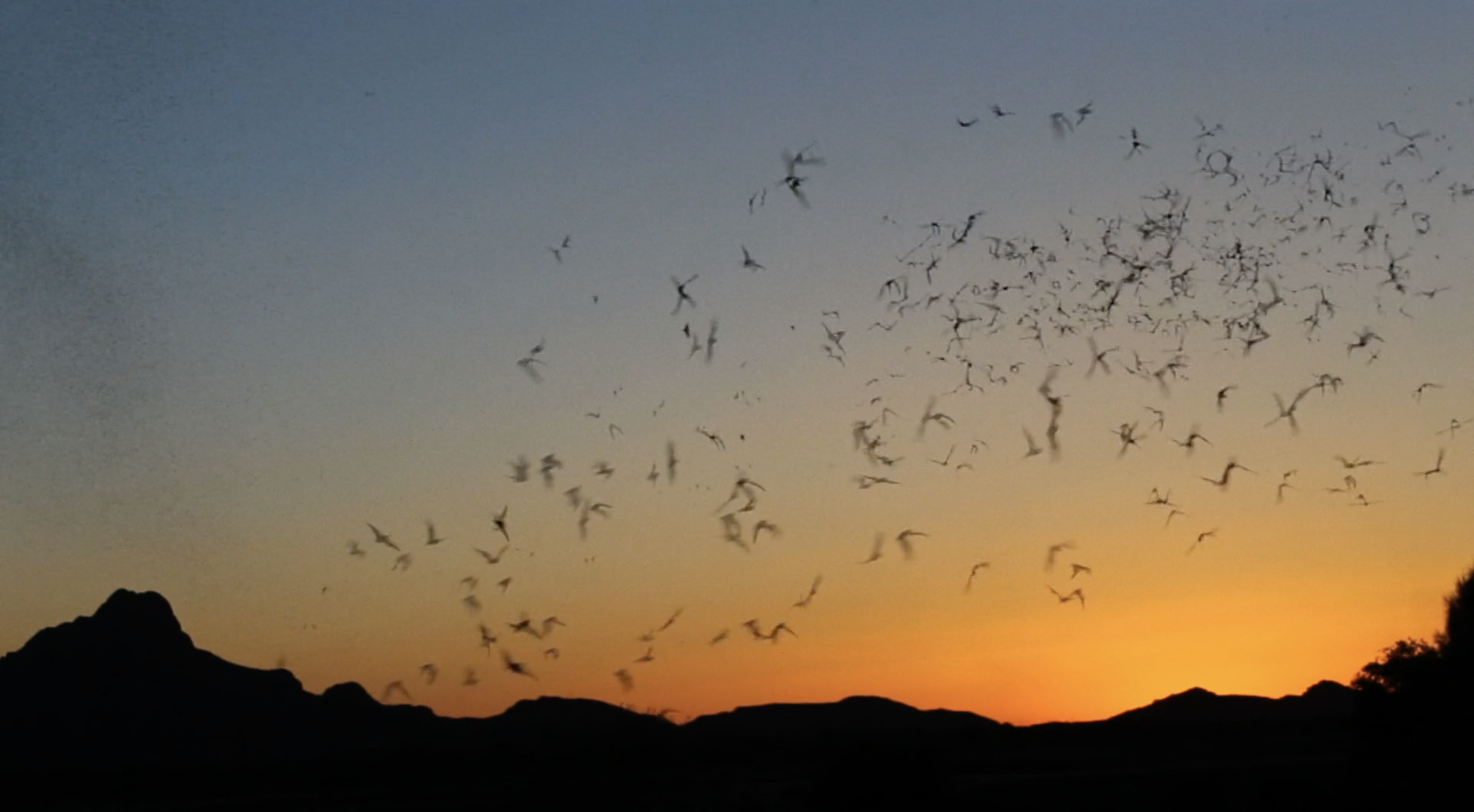Hostile Environment
Spatial and historical perspectives
An evening of video works, lectures and discussion.
at Elephant West, curated by Clara Dublanc
* Screening of Leviathan, by Shezad Dawood
![]()
![]()
![]()
Turning Citizens into Migrants: The Internal Racialized Politics of British Border Control
Talk by Gurminder K Bhambra
Standard accounts of political citizenship align it with the emergence and development of the nation-state. The defining of British citizenship, however, occurred in the context of decolonization and the dismantling of empire. While citizenship was initially broadly conceived, it quickly came to be organized in terms of an explicit racialized hierarchy that sought to turn some citizens into migrants on the basis of the colour of their skin. The Windrush scandal, affecting people from across the former Commonwealth, is the epitome of this move and the likely future that awaits non-UK EU citizens post Brexit.
“Hostile environment”(s)
Talk by Lorenzo Pezzani
The process by which legislation has been used in the UK to make (urban) space hostile to migrants and refugees bears an eerie resemblance with the ways in which other, more “natural” environments have been turned into spaces of hostility for people on the move. From the arid lands of the Sonoran and Sahara Desert to the rugged mountain passes in the Alps or between Iran and Turkey, passing for the waters separating Northern Africa and Europe or encircling Australia, migrants have in the last few years been pushed into more and more inhospitable and hazardous terrains, in the hope that the risk of injury and death they will face might deter them from attempting the crossing. In this presentation, I will focus on migration across the Mediterranean Sea, drawing in particular on my ongoing Forensic Oceanography project, through which I have sought to document and challenge the political, spatial and aesthetic conditions that have led to large-scale deaths of migrants in this area over the last 30 years. By discussing specific practices, protocols and laws, I’ll attempt to delineate a form of border control that does not operate by targeting and disciplining specific subjects, but rather by intervening on the milieu they inhabit or traverse.
About the speakers: Shezad Dawood works across disciplines film, painting, neon, sculpture and more recently virtual reality to deconstruct systems of image, language, site and narrative. Using the editing process as a method to explore both meanings and forms, his practice often involves collaboration and knowledge exchange, mapping across geographic borders and communities.
Gurminder K Bhambra is Professor of Postcolonial and Decolonial Studies at the University of Sussex. She is author of Rethinking Modernity: Postcolonialism and the Sociological Imagination (Palgrave, 2007) and Connected Sociologies (Bloomsbury 2014) and is currently working on reconceptualizing citizenship in the light of understandings of race and colonialism.
Lorenzo Pezzani is an architect and researcher. He is currently Lecturer in Forensic Architecture at Goldsmiths, University of London. Since 2011, he has been working on Forensic Oceanography, a collaborative project that critically investigates the militarized border regime in the Mediterranean Sea, and has co-founded the WatchTheMed platform. Together with several NGOs, scientists, journalists, and activist groups, he has produced maps, videos, installations and human right reports that attempt to document and challenge the ongoing death of migrants at sea.
Spatial and historical perspectives
An evening of video works, lectures and discussion.
at Elephant West, curated by Clara Dublanc
* Screening of Leviathan, by Shezad Dawood



Turning Citizens into Migrants: The Internal Racialized Politics of British Border Control
Talk by Gurminder K Bhambra
Standard accounts of political citizenship align it with the emergence and development of the nation-state. The defining of British citizenship, however, occurred in the context of decolonization and the dismantling of empire. While citizenship was initially broadly conceived, it quickly came to be organized in terms of an explicit racialized hierarchy that sought to turn some citizens into migrants on the basis of the colour of their skin. The Windrush scandal, affecting people from across the former Commonwealth, is the epitome of this move and the likely future that awaits non-UK EU citizens post Brexit.
“Hostile environment”(s)
Talk by Lorenzo Pezzani
The process by which legislation has been used in the UK to make (urban) space hostile to migrants and refugees bears an eerie resemblance with the ways in which other, more “natural” environments have been turned into spaces of hostility for people on the move. From the arid lands of the Sonoran and Sahara Desert to the rugged mountain passes in the Alps or between Iran and Turkey, passing for the waters separating Northern Africa and Europe or encircling Australia, migrants have in the last few years been pushed into more and more inhospitable and hazardous terrains, in the hope that the risk of injury and death they will face might deter them from attempting the crossing. In this presentation, I will focus on migration across the Mediterranean Sea, drawing in particular on my ongoing Forensic Oceanography project, through which I have sought to document and challenge the political, spatial and aesthetic conditions that have led to large-scale deaths of migrants in this area over the last 30 years. By discussing specific practices, protocols and laws, I’ll attempt to delineate a form of border control that does not operate by targeting and disciplining specific subjects, but rather by intervening on the milieu they inhabit or traverse.
About the speakers: Shezad Dawood works across disciplines film, painting, neon, sculpture and more recently virtual reality to deconstruct systems of image, language, site and narrative. Using the editing process as a method to explore both meanings and forms, his practice often involves collaboration and knowledge exchange, mapping across geographic borders and communities.
Gurminder K Bhambra is Professor of Postcolonial and Decolonial Studies at the University of Sussex. She is author of Rethinking Modernity: Postcolonialism and the Sociological Imagination (Palgrave, 2007) and Connected Sociologies (Bloomsbury 2014) and is currently working on reconceptualizing citizenship in the light of understandings of race and colonialism.
Lorenzo Pezzani is an architect and researcher. He is currently Lecturer in Forensic Architecture at Goldsmiths, University of London. Since 2011, he has been working on Forensic Oceanography, a collaborative project that critically investigates the militarized border regime in the Mediterranean Sea, and has co-founded the WatchTheMed platform. Together with several NGOs, scientists, journalists, and activist groups, he has produced maps, videos, installations and human right reports that attempt to document and challenge the ongoing death of migrants at sea.
